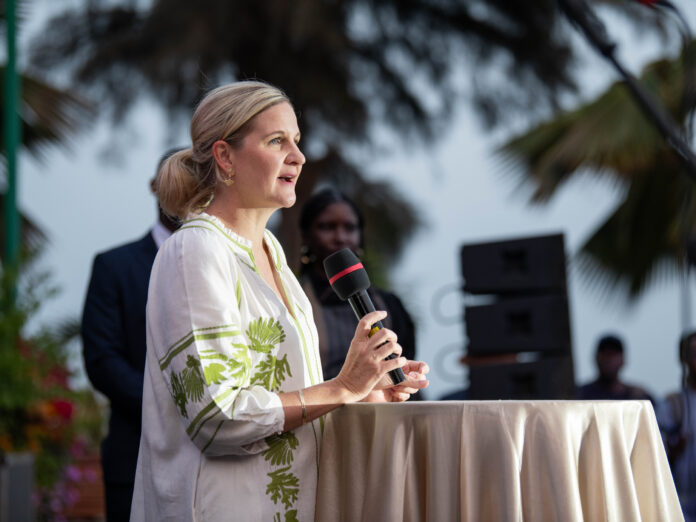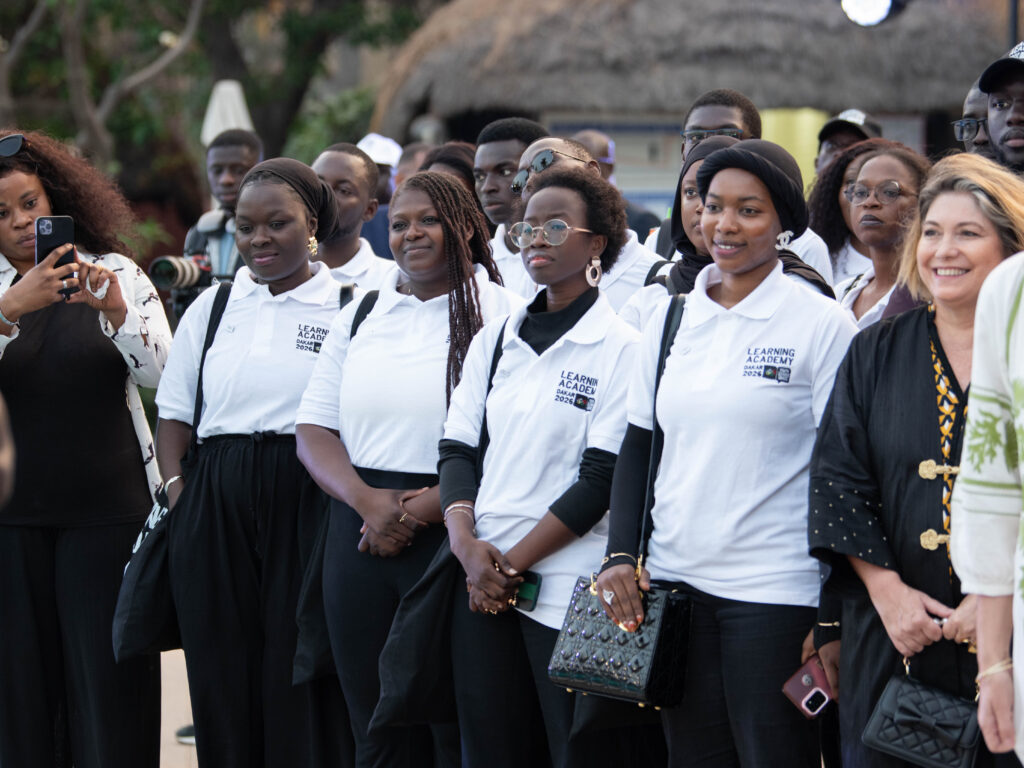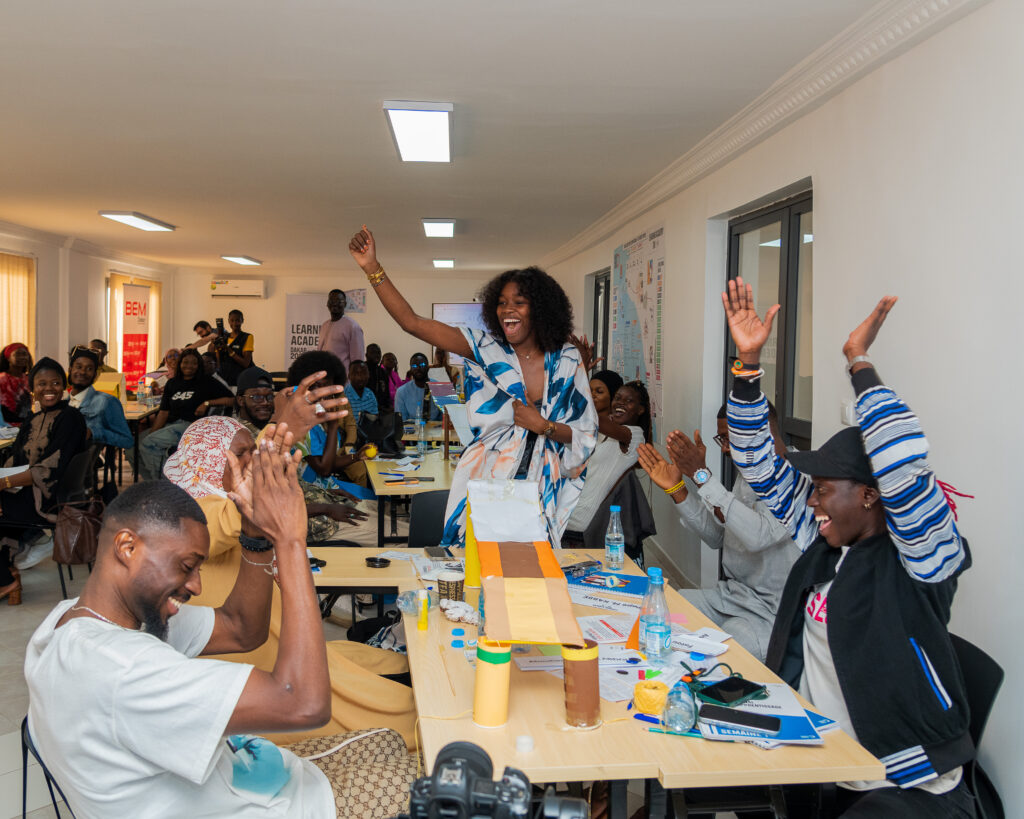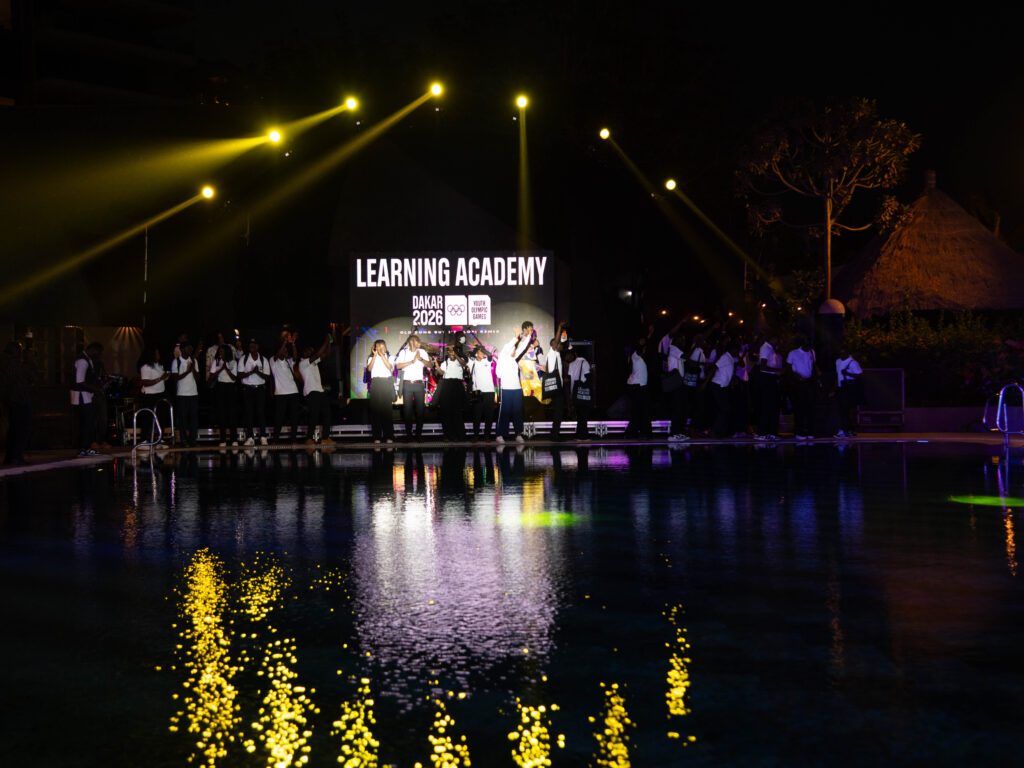
More than a debut, Dakar 2026 is Africa’s declaration of readiness—not just to host, but to redefine global events on its terms. With skilling programs ongoing, infrastructure upgrades on course, and cultural authenticity at its core, can Senegal’s Olympic moment shape up a long-term legacy for the continent?
Bonface Orucho, bird story agency
Senegal is gearing up to host Africa’s first-ever Olympic event — but the real goal stretches far beyond two weeks of sport.
The 4th Summer Youth Olympic Games (YOG), set for October 2026 in Dakar, are being framed not just as a celebration of athleticism but as a continental ‘coming-of-age moment’—one that blends world-class sports with African leadership, youth development, and long-term systems change.
For many observers, Dakar 2026 is Africa’s chance to prove that it can host a global event on par with established Olympic nations.
“Dakar 2026 must be a demonstration that global events hosted in Africa can leave inclusive legacies — not just empty stadiums,” Margaret Sasha, a member at SheFootball, a Nigeria-headquartered nonprofit focused on gender equity in soccer, shared in an interview.
“This isn’t just about sports; it’s about building an ecosystem where everyone, including young girls, see real opportunities — in coaching, officiating, event logistics, even tech,” she added.
According to the Olympics website, the event could attract more than 4,000 athletes, aged 15 to 18, from more than 200 National Olympic Committees, who will participate in 35 disciplines.

This makes it one of the most diverse sporting gatherings ever held on African soil, joining the ranks of South Africa after hosting the 2010 World Cup.
“Dakar 2026 is more than a sporting event — it’s a test of Africa’s ability to deliver,” explained Lincoln Kiplagat, a sports academy founder in Mt. Elgon, in Kenya.
“But by infusing it with our art, dance, and spirit, we can show the world that global events hosted here can be both effective and uniquely African,” he explained in a telephone interview.
Senegal’s preparations are ramping up on multiple fronts.
The Dakar Olympic Complex, for instance, a 5-hectare complex in the city, is undergoing a facelift. A status update by Sogea-Satom, an international construction firm, released in April revealed it is being upgraded to host three pools, two football fields, two basketball courts, two tennis courts, a handball court, a sports course, fitness and weight rooms, an accommodation center, restaurants and seminar rooms.
The committee is at the forefront of financing these developments.

In July 2024, IOC approved a record US $650 million Olympic Solidarity budget for 2025–2028 — up 10%. A major focus is youth development in Africa ahead of Dakar 2026, with athlete support alone rising 16% to US$66 million.
The seventh meeting of the International Olympic Committee (IOC)’s Coordination Commission held last week led to the Dakar 2026 Masterplan.
A key outcome of the meeting was the launch of the Dakar 2026 Learning Academy, a flagship program set to train and recruit more than 400 young professionals aged 21 to 35 ahead of the games.
The Coordination Commission welcomed the final Dakar 2026 venue master plan, now featuring a confirmed road cycling route along Dakar’s scenic Corniche Ouest. Significant construction progress across key sites has also boosted overall venue readiness.
These include venues like the Complexe Tour de l’Oeuf in Dakar (set to host swimming, 3×3 basketball, breaking, baseball, and street skateboarding) and the nearby Complexe Iba Mar Diop (for rugby sevens, athletics, boxing, and futsal).
In Diamniadio, preparations are advancing at the Dakar Arena (badminton, futsal), Dakar Expo Centre (fencing, taekwondo, table tennis, artistic gymnastics, judo, and wushu), and the Equestrian Centre (equestrian jumping).
The Abdoulaye Wade Stadium will host archery, while the Saly Beach West venue—about 90 minutes from Dakar—will stage beach and water sports, including windsurfing, rowing coastal beach sprints, beach volleyball, handball, wrestling, and triathlon, according to the venue master plan.
Beyond infrastructural upgrades, human development and skilling programs are also now live.
The Dakar 2026 Learning Academy launched its first cohort, comprising 41 young professionals, in April, selected from 1,800 applicants. The program will train over 400 individuals across nine cohorts by September 2026 in event operations, sustainability, and Olympic values.

“These participants will benefit from tailored learning experiences where sport and Olympism serve as a foundation for personal and professional development,” said Ibrahima Wade, General Coordinator of the Organizing Committee.
Dakar 2026 is also weaving in African culture and youth energy into the upcoming Games.
The Dakar en Jeux festival — a vibrant cultural prelude to the Games — already held its second edition in 2024 and will return in 2025 with a broader pan-African focus.
According to the festival organizers, this year, it will feature artists and athletes from across the continent, ahead of a final edition inviting global talent in the Olympic year.
“In 2025, we will push the boundaries further by opening it to the whole world,” said Amadou Fall Ba, director of Senegal’s Festa2H cultural festival, in a 2024 interview with Francsjeux.com.
“One year before the YOG, this will allow us to get used to it but also to look elsewhere in the world for talent and expertise,” Fall Ba added.
During the Games, this fusion will continue through a cultural and educational programme. Running parallel to the competitions, the program will promote health, entrepreneurship, digital literacy, and environmental awareness among young participants.
Senegal’s Olympic debut coincides with a historic leadership transition in the Olympic Committee.
In June 2025, Kirsty Coventry — Zimbabwe’s former sports minister and one of Africa’s most decorated Olympians—will make history as the first woman and first African to lead the International Olympic Committee, following her election as its 10th president in March.
Dakar 2026 will be her first major assignment as IOC President.
Coventry has long advocated for youth-focused and inclusive sporting environments. Her leadership could signal a broader recalibration of the Olympic movement toward Africa’s sporting realities.
During the launch of the training program on May 8, she stated, “You are ambassadors for the young generation of what the sporting movement can be and the legacy the Youth Olympic Games can leave behind.”
Meanwhile, another African sports icon, Humphrey Kayange of Kenya, is playing a crucial role as Chair of the IOC Coordination Commission for Dakar 2026.
A retired international rugby player and Olympic advocate, Kayange stepped into the role after Coventry’s elevation, providing hands-on oversight of the Games’ delivery process.
bird story agency
Useful link for editors:
https://www.olympics.com/en/news/dakar-2026-advances-venue-and-legacy-plans-as-youth-olympic-games-preparations-intensify


